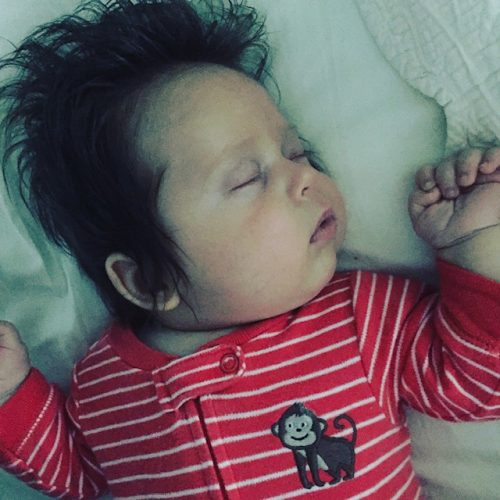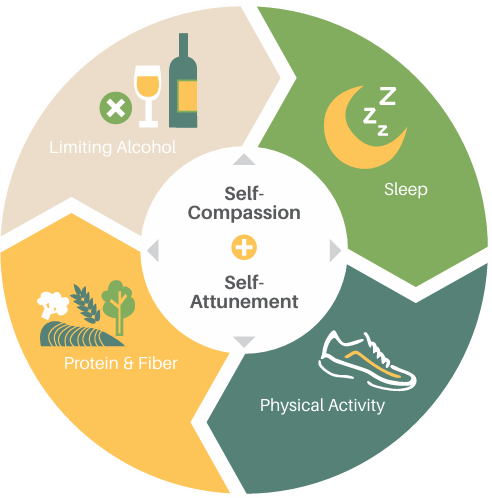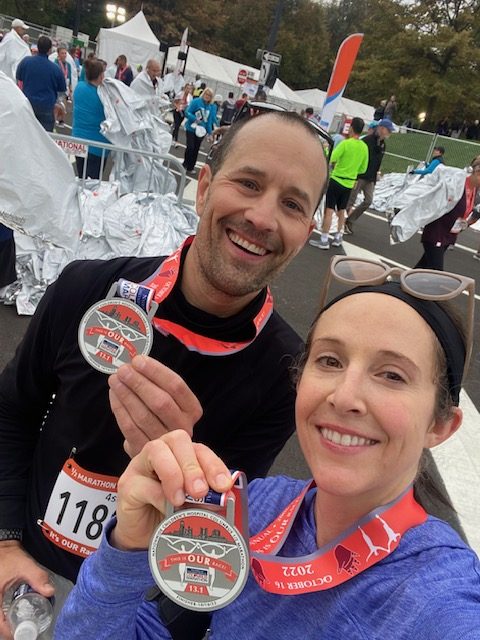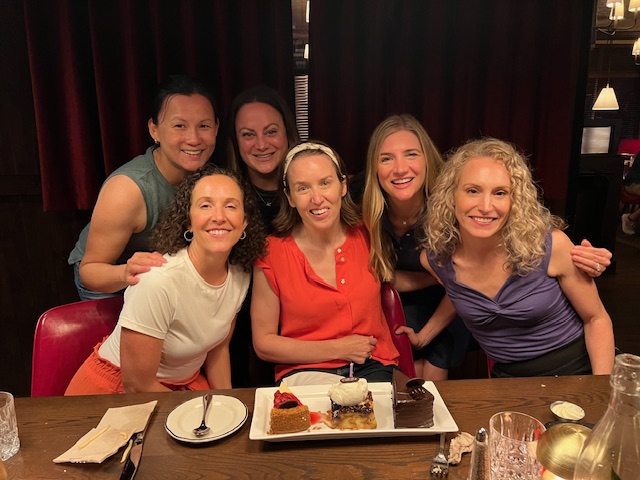I will die on this hill. Even as a dietitian I still think getting adequate quality sleep is the most important thing we can do for our health. With summer ending and school beginning, this is a great time to start new sleep habits. Here is a little teaser from my book, coming out this December!

According to the National Institute of Health (NIH), adults need between 7 and 9 hours of sleep a day (for teens it’s 8-10 hours a day). Inadequate sleep has been linked to increased risks for a wide range of disorders; hypertension, type 2 diabetes, impaired immune functioning, cardiovascular disease and arrhythmia, mood disorders, dementia and loneliness. We tend to rely so heavily on zinc supplements and “Emergen-C” and obsessing over “anti-inflammatory supplements and foods”, when a big part of our immunity and anti-inflammatory system is actually built into our life already, via sleep (27). When we are in tune with our bodies, we can recognize when we need to rest or sleep. It is out job to act on that signal. Many of us are over-scheduled and over-worked, so when we get a signal that our body needs rest, we try to mask it with energy drinks, coffee or (insert whatever you use to stay awake). This may help in the short term, but in the long term it’s detrimental to our health and well-being
Americans aren’t getting enough sleep. Shocker. Between the years of 1942 and 2023, the number of Americans getting 5 hours or less sleep a night has more than quadrupled. What has changed? My theory is that the smart phone has played a huge role in interrupting our sleep and negatively affecting our good sleep hygiene (nothing is better at keeping us awake than endless scrolling). In my own practice I ask about sleep quantity and quality regularly. Most of my clients who say they tend to stay up late, or can’t fall asleep, report that their phone is the main distraction (phones or TVs in their room, often both). Phones are a great way to rev your body up, not down. Phones are not like books; they do not relax our bodies or our minds. When we look at phones, we may often consider it “relaxation” but it’s doing the opposite to our bodies. Phone use before bed disrupts sleep quality (28), and receiving texts or calls throughout the night can cause constant nighttime waking. We can turn our phone on silent, but it doesn’t negate the fact that having our phone in bed is one of the worst things that has happened to sleep in the 21st century. Many studies have been done in youth and teens, but even for adults, the blue light being emitted from the cell phone can disrupt sleep cycles (think about it, during the day we try to get outside and get sun to help our body understand it’s “awake time”! The blue light could potentially have the same effect). Blue light isn’t affecting our sleep just from night time phone use, but the use of blue light in general, throughout the day, could have a negative effect on our sleep (29). Have a blue light screen protector or glasses? They could possibly help, but it still doesn’t protect you from the effect that scrolling can have on our nervous system. In August 2024 a study of 800 adults was published in Computers in Human Behavior Reports suggesting doomscrolling evokes greater levels of existential anxiety — a feeling of dread or panic that arises when we confront the limitations of our existence (30). In an NPR article, Dr. Sahbi Khalsa described how the “dialogue between the body and the brain can help us understand what’s going on in our bodies (self-attunement!), but technology can distract us from noticing those important signals from the brain — and it can also be the source of our distress. We can scroll for hours, not paying attention to how tired we are, or how unhappy scrolling makes us feel.” Your social media feeds are endless. We could scroll for the entire night and still have infinity hours left to scroll. What is stopping us from scrolling all night when what we are seeing is getting in the way of self-attunement and interrupting our ability to notice our bodies important signals saying, “let me sleep already!!”
What else gets in the way of good quality sleep? There are a few things that come to mind: having a TV in the bedroom (for many of the same reasons as scrolling on your phone, but not to the same extent). My own partner of twenty years, when we first started dating, used to fall asleep with the television on nightly. He can thank me for helping him break this habit, because I wouldn’t stand for it (he doesn’t thank me, but I like to remind him that he should!). Some other distractions include stress, being too hot, inconsistent sleep schedules, and eating large meals before bed.
How can we improve our sleep hygiene (a fancy way of saying, our sleep habits)? Let’s first think about the things that can disrupt sleep, as mentioned previously. For starters, putting the phone away 1-2 hours prior to getting into bed is a good habit to start. Next, consider turning the television off 1-2 hours before bed, too. From my experience, I understand this one can be more difficult to break. If you like to watch television before bed, consider keeping the television out of your bedroom, so your room is a sanctuary for sleep and intimacy only. Next, keep your room cool. The best temperature for optimal sleep quality is between 65- and 68-degrees Fahrenheit, according to The Sleep Foundation. Next, try to keep your sleep schedule relatively consistent. For example, on the weekends, don’t veer too far off your regular sleep schedule (I generally suggest sleeping in more on Saturdays, then wake up earlier on Sunday, to prepare for Monday). Another tip is to not eat a large meal right before bed, which can disrupt sleep. It’s ok to eat a snack, especially if you are feeling hungry, or if you’ve been told to eat before bed for blood sugar control, but large meals before bed can make it harder to get good quality sleep (31). Additionally, larger meals within about 1 hour of getting into bed may be linked to more reflux symptoms and heartburn. Try to put at least two hours between your last meal and getting into bed to sleep.
Read more about sleep, and my foundations for health and well-bing in my book, to be published this holiday season!
Get on my waitlist for insurance covered intuitive eating coaching by emailing me at Gina.Forster@UseNourish.com
Visit my personal business website; www.NutritionUnmeasured.com
Check out my 10-module self-paced intuitive eating course on my new You Tube channel!!




